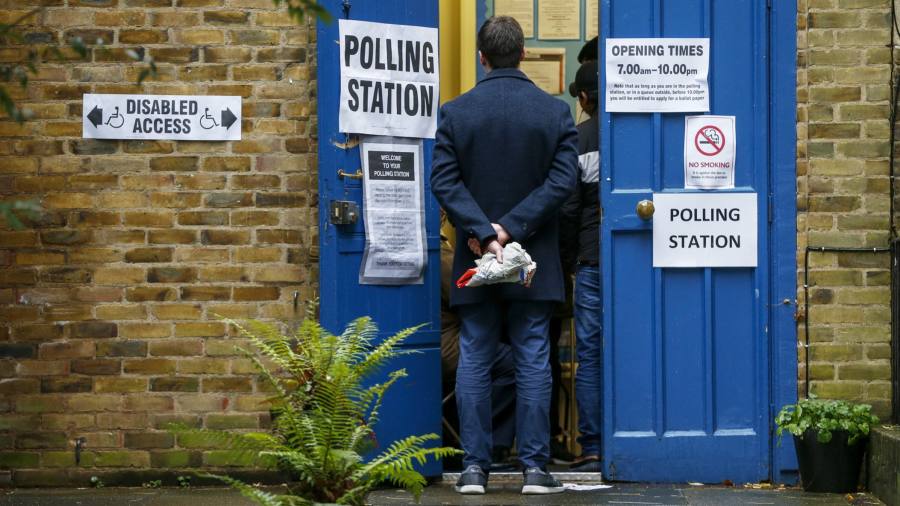
Britain’s Conservative prime minister Rishi Sunak has pledged “integrity, professionalism and accountability” in government. Nowhere is integrity more important in a democracy than in the electoral process. Yet a mishandled move to require voters to show photo identification to vote in person — which will operate for the first time in Thursday’s local elections in England — risks leading to a significant number without the right ID being turned away. Campaigners warn those mostly likely to be affected come disproportionately from disadvantaged and minority communities, who tend not to be Tory voters.
The reforms passed last year by what was then Boris Johnson’s government might be said to be taking a sledgehammer to crack a nut — except there was never really a nut to crack. They are billed as aiming to reduce fraud by voters pretending to be someone else. Yet Electoral Commission data show only seven allegations of attempted impersonation in polling stations last year, with no police action taken.
Where electoral fraud has occurred in the UK, it has tended to involve election expenses, manipulation by parties, or postal votes. Ministers have cited a 2014 scandal in London’s Tower Hamlets, where a mayoral contest was declared void, as an example of the need for action. But this was a rare and unusual case mostly involving not impersonation but misuse of postal voting — which is not covered by the new rules.
Voter ID is commonplace in many sound democracies, and there is no compelling argument against it. If it was to be done, however, it should have been handled in a more cross-party way. Reinforcing suspicions over the government’s motives is the fact that last year’s election law also weakened the Electoral Commission’s independence, by requiring it to follow regular government-issued strategy statements.
Critics have likened the Tory enthusiasm for voter ID to Republican-led voter suppression in various US states. Not everyone has a passport or driving licence, and the list of acceptable alternatives — an older person’s bus pass is fine; student IDs or young person’s railcards are not — is oddly tilted in favour of generally Conservative-leaning older voters. A House of Lords move to widen the list was rejected by the government. The Electoral Commission warned pressing ahead with the new rules in these elections was too soon, but the government did so anyway.
Like so much in UK politics, this may all be cock-up or obstinacy rather than conspiracy. But estimates of voters without eligible ID range from 925,000 to 2mn. The government offered a free “voter authority certificate” to people applying online, but only 89,502 had done so by last week’s deadline.
The key test of the new measures will be how many voters are turned away from polling stations for lack of ID and do not return. Election officers will be collecting numbers for a subsequent report. But it emerged last week that “greeters” being deployed outside polling stations to remind people of the new rules will not note how many people leave without ever going inside, so the real number may never be known.
Requiring voter ID to stop fraud also raises a bigger question — of why the government does not then go the whole hog and issue a national ID card for access to government services. For now, the priority is to see if Thursday’s elections pass without significant issues. If it does appear meaningful numbers of voters have been turned away, the government must drop the partisanship that has characterised its adoption of the ID rules and take all necessary steps to ensure next year’s general election is above reproach. Sunak’s promise of integrity will otherwise count for little.